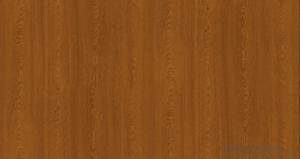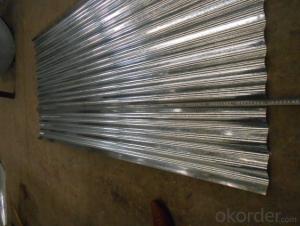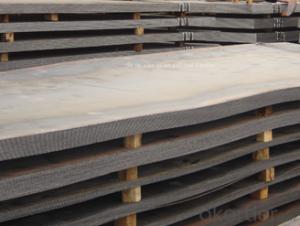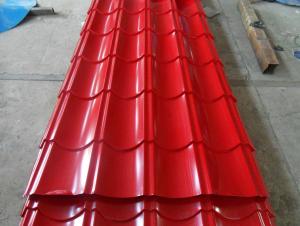color bond surface coating steel plate--XY025
- Loading Port:
- China Main Port
- Payment Terms:
- TT OR LC
- Min Order Qty:
- -
- Supply Capability:
- -
OKorder Service Pledge
OKorder Financial Service
You Might Also Like
1. Color bond surface coating steel plate :
2.More than ten years experiences, the products are sold to the domestic city and some international cities we strivc to develop production of color coating steel plate the plating (aluminum )
zinc steel. Coil cheickness between 0.6mm and 1.5mm and the width from 600mm to 1250mm and a variety of high durability of color coating steel plate.
3.The company has multiple layer patterns for customers to choose The company provides products deep processing services ,meet the various needs of customers on board specifications All of out products comply with international quality standards and are greatly appreciated in a variety of different markets throughout the world.
4. If you ate interested in any of our products or would like to discuss a custom order please feel free to contact us we are looking forward to forming successful business relationships with new clients around the world in the near future.
5.We can design the color and thickness according to customers' requirements. The delivery time is only 30 day after you confirm the order.
- Q:What are the different methods of joining steel sheets?
- There are several methods of joining steel sheets, including welding, riveting, bolting, and adhesive bonding.
- Q:Can steel sheets be used for automotive manufacturing?
- Certainly, steel sheets have the ability to be employed in automotive production. The automotive sector extensively utilizes steel due to its robustness, longevity, and cost efficiency. Steel sheets find common application in diverse automotive constituents like body panels, chassis, frames, and structural reinforcements. They offer the essential strength and stiffness necessary to ensure the safety and functionality of vehicles. Furthermore, steel sheets can be effortlessly shaped and molded into various forms, rendering them appropriate for intricate automotive designs. Additionally, steel is easily obtainable, hence making it a favored option for automotive manufacturers.
- Q:What are the different coating options for steel sheets (powder coating, paint, etc.)?
- Steel sheets have a variety of coating options that each have their own unique benefits and characteristics. Some commonly used coating options include: 1. Powder coating: Dry powder coating material is applied to the steel sheet and then cured under heat to create a protective layer. This coating offers excellent durability, corrosion resistance, and aesthetic appeal. It is also environmentally friendly as it does not contain solvents or VOCs. 2. Paint: Liquid paint is applied to the surface of the steel sheet and dries to form a protective layer. Paint coatings come in a wide range of colors and finishes, making them suitable for different applications. However, they may require regular maintenance and can chip or peel. 3. Galvanizing: Galvanizing is a popular method for coating steel sheets, particularly when corrosion resistance is important. A layer of zinc is applied to the steel surface through a hot-dip process, creating a protective barrier against corrosion and rust. Galvanized coatings are highly durable and long-lasting. 4. Epoxy coatings: Epoxy coatings are known for their excellent chemical resistance and adhesion properties. They provide a tough and durable finish that protects steel sheets from corrosion, chemicals, and abrasion. Epoxy coatings are commonly used in industrial settings with harsh conditions. 5. Chromate conversion coatings: Chromate conversion coatings are applied to steel sheets to enhance their corrosion resistance and improve paint adhesion. These coatings are usually thin and translucent, giving a clear or slightly yellowish appearance. They are often used as a pre-treatment before painting or powder coating. 6. Ceramic coatings: Ceramic coatings offer exceptional heat resistance and durability. They are commonly used in high-temperature applications such as exhaust systems or industrial ovens. Ceramic coatings can withstand extreme temperatures, corrosion, and abrasion, making them ideal for demanding environments. There are many other coating options available for steel sheets. The choice of coating will depend on factors such as the intended application, desired appearance, environmental conditions, and budget. Seeking advice from a coating specialist or manufacturer can help determine the most suitable option for specific requirements.
- Q:What are the applications of steel sheets?
- Steel sheets have a wide range of applications across various industries. They are commonly used in construction for roofing, siding, and structural support due to their strength, durability, and resistance to corrosion. Steel sheets are also used in automotive manufacturing for body panels and chassis components. Additionally, they find utility in appliances, machinery, and equipment manufacturing, as well as in the production of household items like utensils and cookware.
- Q:Can steel sheets be used for manufacturing containers or packaging?
- Yes, steel sheets can be used for manufacturing containers or packaging. Steel is a durable and strong material that provides excellent protection for goods during transportation and storage. It is commonly used in industries such as food and beverage, chemicals, and manufacturing for the production of containers and packaging.
- Q:Are steel sheets affected by UV radiation?
- Yes, steel sheets can be affected by UV radiation. Over time, prolonged exposure to UV radiation can cause steel sheets to undergo a process called photo-oxidation, leading to degradation, discoloration, and potential loss of strength. To protect steel sheets from UV damage, they are often coated with specialized finishes or paints that contain UV stabilizers or inhibitors.
- Q:Can steel sheets be used in the energy sector?
- The energy sector can indeed make use of steel sheets. Steel, being a versatile material, offers numerous advantages for different applications in the energy industry. It finds common usage in the construction of power plants, transmission towers, and infrastructure for renewable energy sources like wind turbines and solar panels. Power plants employ steel sheets in fabricating boilers, turbines, and other components. Steel's high strength and durability make it suitable for withstanding the high temperatures and pressures involved in power generation processes. It also possesses resistance to corrosion and erosion, ensuring the longevity of critical equipment. Transmission towers and substations also rely on steel sheets for their construction. These structures support power transmission lines and aid in the efficient flow of electricity across long distances. Steel's robust mechanical properties make it an ideal choice for such applications, as it can withstand the weight and stresses imposed by power transmission infrastructure. Moreover, steel sheets play a vital role in the manufacturing of wind turbines and solar panels. In wind turbines, steel is used for the tower structure, which must possess sufficient strength to support the rotor's weight and endure the wind forces. Additionally, steel sheets are utilized in constructing solar panel frames, providing stability and rigidity to the photovoltaic modules. All in all, steel sheets are extensively utilized in the energy sector due to their strength, durability, and resistance to various environmental factors. The versatility of steel makes it a dependable choice for a wide range of applications, contributing to the generation and transmission of energy from both conventional and renewable sources.
- Q:Are the steel sheets recyclable?
- Yes, steel sheets are recyclable.
- Q:Can steel sheets be used in high-temperature applications?
- Yes, steel sheets can be used in high-temperature applications due to their excellent heat resistance properties. Steel sheets are commonly used in industries such as automotive, aerospace, and manufacturing where high temperatures are encountered.
- Q:What is the difference between a standard and high-strength steel sheet?
- The difference between a standard and high-strength steel sheet lies in their respective mechanical properties and performance characteristics. Standard steel sheets are often made from low to medium carbon steel, typically with a yield strength of around 250 MPa (megapascals). These sheets are commonly used in applications that do not require extreme strength or resistance to deformation. On the other hand, high-strength steel sheets are manufactured with a higher carbon content and alloying elements such as manganese, chromium, or nickel. This composition enables them to have significantly higher yield strengths, ranging from 350 to 1,000 MPa or even more. As a result, high-strength steel sheets offer enhanced resistance to deformation, higher tensile strength, and improved durability. Due to their superior mechanical properties, high-strength steel sheets are often selected for applications that demand increased strength-to-weight ratios, such as automotive components, structural parts, and heavy machinery. These sheets can withstand higher loads, endure extreme conditions, and provide better protection in case of impact or sudden forces. While standard steel sheets are more readily available and less expensive, high-strength steel sheets are preferred in situations where superior strength and performance are necessary. However, it is important to note that high-strength steel sheets may be more challenging to form, weld, or machine due to their increased hardness. Therefore, careful consideration of the specific application requirements is crucial when choosing between standard and high-strength steel sheets.
1. Manufacturer Overview |
|
|---|---|
| Location | |
| Year Established | |
| Annual Output Value | |
| Main Markets | |
| Company Certifications | |
2. Manufacturer Certificates |
|
|---|---|
| a) Certification Name | |
| Range | |
| Reference | |
| Validity Period | |
3. Manufacturer Capability |
|
|---|---|
| a)Trade Capacity | |
| Nearest Port | |
| Export Percentage | |
| No.of Employees in Trade Department | |
| Language Spoken: | |
| b)Factory Information | |
| Factory Size: | |
| No. of Production Lines | |
| Contract Manufacturing | |
| Product Price Range | |
Send your message to us
color bond surface coating steel plate--XY025
- Loading Port:
- China Main Port
- Payment Terms:
- TT OR LC
- Min Order Qty:
- -
- Supply Capability:
- -
OKorder Service Pledge
OKorder Financial Service
Similar products
New products
Hot products
Related keywords



























